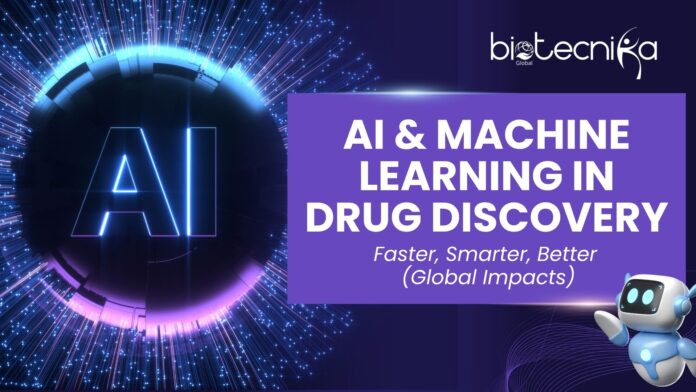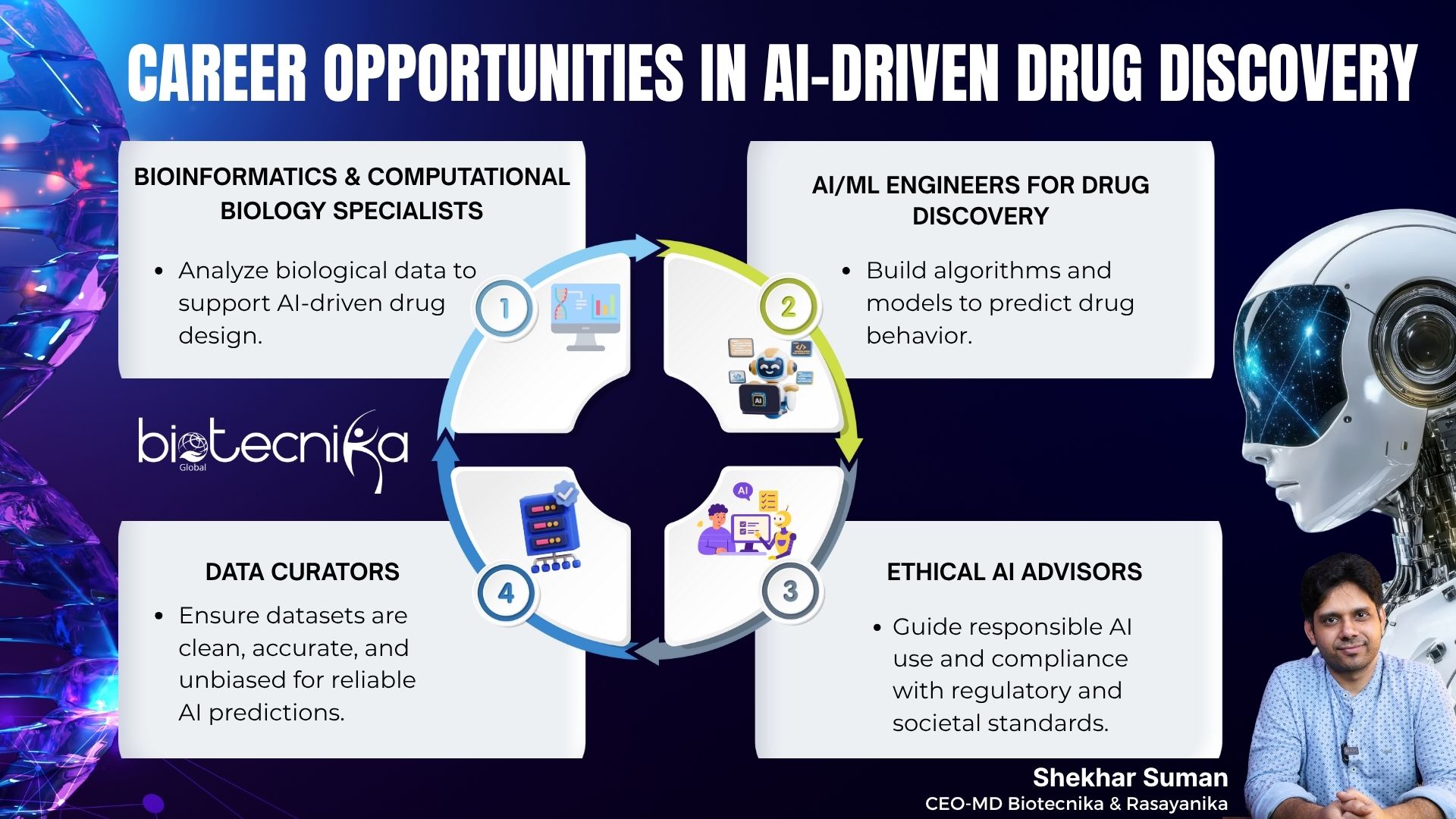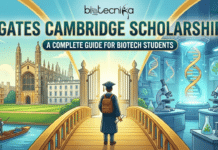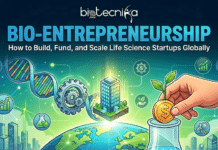AI in Drug Discovery | Faster, Smarter, Better with Machine Learning
AI in Drug Discovery is rapidly transforming the way medicines are developed around the world. Let’s have an honest conversation; we all know about the painful truth of drug discovery. Imagine spending over a decade and billions of dollars trying to create a single medicine, and often ending up with a failure. With such low success rates, most of the promising molecules never make it to the pharmacy shelf.
But now things are changing, and all thanks to the advancing technology. Modern tools like AI in Drug Discovery and machine learning are rewriting the rulebook of how drugs are developed. These technologies are not only transforming the process but are also making it dramatically faster, smarter, and more precise than ever before.
Are you curious about this emerging field of science? Then come, let’s explore how AI and ML work in drug discovery. We will understand some of the real-world breakthroughs that are already happening. We will examine the benefits as well as the challenges ahead, as well as what these changes mean for a life science enthusiast like you. By the end, you will see why this revolution is opening new doors, not just for medicine, but also for your future career.
How AI and Machine Learning Work in Drug Discovery
Drug discovery is like solving a puzzle. The whole process depends on questions like “which molecule can fit a biological target, how safe will it be, and how well will it work in humans?” And AI and ML help you in solving such puzzles by spotting patterns hidden in data. They break down the puzzle into four parts:
-
Target Identification:
The AI system has the ability to scan large, complex genetic, proteomic, and clinical data. With this scanning, it will be able to identify the potential drug targets. This will cut down the years of hard work that our researchers would spend on target identification. The process that used to take years can now be completed within weeks with the help of AI.
-
Molecule Design:
We all have heard that science is all about trial and error. But not anymore. With generative AI models, we can design completely new molecules that meet specific requirements like binding tightly to a protein or avoiding toxicity.
-
Toxicity Prediction:
One of the biggest reasons for the drug failure is its expected side effects. To tackle this problem, our experts have trained ML models with past drug data. This will help the researchers in predicting toxicity even before the drug enters a living being. This will save time, money, and effort.
-
Clinical Trial Optimization:
With AI, the researchers are now designing smarter clinical trials by identifying which patients are most likely to respond to a new therapy. This will shorten trial duration and improve success rates.
Behind all this big data and cloud computing lies a vast scale of genomic data, patient records, and biological libraries. Without cloud-based platforms and AI algorithms, analyzing this huge chunk of data in real-time would be challenging.
Real-World Impacts of AI in Drug Discovery
AI in drug discovery is no longer an experiment that you have studied in your textbooks. Today, it is already delivering real-world results. The results are changing thousands of lives. Let’s have a look at some of these real-world impacts of AI in drug discovery:
-
Speeding up timelines:
Traditionally, our researchers had to spend 10-12 years developing a drug. But AI-designed drug candidates have entered human trials in as little as 18 – 24 months. This is a radical shift in drug discovery.
-
Higher success rates:
When compared with 40-65% of traditional process success rates, the AI-driven approach has boosted Phase 1 clinical trials to 80 – 90%. With fewer failures, we will have more breakthroughs, which will lead to better healthcare facilities.
-
Case Studies:
- Cancer Research: Some AI-biotech companies, such as Exscientia, have managed to take new cancer drug candidates into clinical trials much more quickly than traditional methods ever allowed. Their approach blends data science with biology to fast-track oncology treatments.
- Alzheimer’s Disease: One of the toughest challenges in Alzheimer’s research is getting medicines past the brain’s natural defense system, the blood-brain barrier. Recent projects have shown how advanced data-driven models can study brain scans and suggest which compounds have the best chance of reaching the brain effectively.
- Antibiotic Discovery: In 2024, scientists reported the identification of almost one million potential new antibiotic molecules. This huge leap forward is especially important as the world struggles with rising antimicrobial resistance.
- COVID-19 Therapies: When the pandemic struck, researchers turned to advanced computing platforms to screen existing medicines and design new antibodies. This helped accelerate the hunt for effective treatments at a critical moment for global health.
Internationally, every year, billions of dollars are invested in AI-driven drug discovery. And the most fascinating part is that there are currently hundreds of AI-based drugs in pipelines. These drugs are expected to enter trials in the next 3 years. There is undeniable momentum in the drug discovery process with AI and Machine Learning.
Benefits of AI and Machine Learning in Drug Discovery
After you have understood the importance of AI and ML and how it is impacting our lives, let’s see what exactly makes AI and Machine Learning in drug discovery such a breakthrough.
-
Time and Cost Efficiency:
Creating a new drug is not just complicated; it is incredibly expensive. On average, it can cost over $2 billion and takes more than 10 years. With AI tools, this burden has now become lighter than ever before. The costs are reduced upto 40% and also development timelines have shrunk by nearly 70%. For pharma companies, this is a huge relief. And for patients, it means life-saving medicines will reach them sooner.
-
Precision Medicine:
We all know that not every medicine works the same way for every person. Traditional drugs are often developed with a “one-size-fits-all” approach. AI changes this by analyzing patient data, including genetics, health records, and lifestyle factors. AI can help design treatments tailored to individuals. The result? Medicines that are more effective, with fewer side effects.
-
Global Accessibility:
One of the major impacts of AI AND machine learning in drug discovery is its accessibility. A few decades ago, the large-scale drug discovery programs were only for big pharmaceutical companies in wealthy countries. But now with AI platforms available on the cloud, even small labs and researchers from developing countries can contribute with their breakthroughs. This opens up global opportunities for everyone without any boundaries.
Challenges and Ethical Issues in AI in Drug Discovery
While the field is filled with hopes and promises of a better future, there are obstacles, too. To make it easy for you, here are some of the challenges you may face with AI and Machine Learning in Drug Discovery:
-
Data Quality and Privacy
AI depends on the data it is trained with. Poor or biased data can lead to wrong results, and handling sensitive patient information safely is a major challenge.
-
Regulatory Hurdles
The regulatory bodies like the FDA and EMA are still figuring out how to evaluate AI-designed drugs. Transparency in decision-making is key to approval.
-
Explainability
AI is still a mystery to humans. Many AI tools work like “black boxes,” giving results without showing why. In medicine, understanding the reasoning is essential for trust.
-
Interdisciplinary Collaboration
The field of drug discovery needs someone who is more than just a biologist or chemist. As a life science student, you must have strong hybrid skills to work in collaboration with data science, medicine, and ethics.
Future Trends: Careers in AI and Machine Learning in Drug Discovery
The global market for AI in drug discovery is growing faster than ever and is expected to be worth tens of billions of dollars in the next decade. For life science students and young researchers, this boom translates into exciting new career opportunities.
One of the most fascinating trends is Generative AI combined with robotics. Imagine a lab where robots, guided by smart algorithms, can design, build, and even test molecules automatically. This is not just a futuristic idea. It’s already starting to happen and will completely change how research labs function.
Another development to watch is Federated Data Analysis. Instead of moving patient data from one place to another (which risks privacy), hospitals and research centers will share insights without exposing raw data. This will allow global collaboration while still protecting sensitive information.
All of this is creating brand-new career paths, such as:
- Specialists in bioinformatics and computational biology
- AI and ML engineers focused on drug discovery
- Data curators who ensure datasets are accurate and unbiased
- Advisors who guide the ethical and regulatory use of AI in medicine
For students, the message is clear: now is the perfect time to build hybrid skills. If you can combine biology with coding, pharmacology with data science, and biotechnology with machine learning, then you will stand out. Remember, the future belongs to the professionals who can connect both worlds. You should build the bridge between the science of life and the power of data.
Conclusion: Why AI in Drug Discovery Is Making Medicine Better
The use of AI and machine learning in drug discovery is not just another tech upgrade. It’s a complete shift in how we approach medicine. What once took decades and huge amounts of money can now be done in a fraction of the time, with greater accuracy and better outcomes.
From developing new antibiotics to creating advanced cancer therapies, AI is already making a mark on global health. The impact is huge: more affordable medicines, faster solutions for rare diseases, and new opportunities for researchers across the world to contribute to life-changing discoveries.
For today’s life science graduates and young researchers, this field is bursting with possibilities. Learning how to work with these technologies does not just set you up for a strong career. It places you right at the heart of a healthcare revolution that could benefit billions of people.
The takeaway is simple: AI in drug discovery is not something to look forward to. It’s happening right now. And it’s your generation of scientists who will carry it forward.







